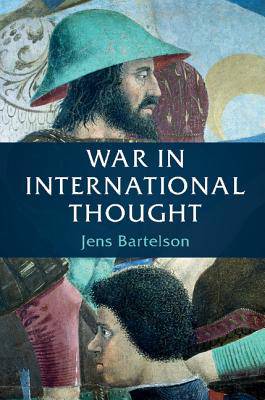
Door een staking bij bpost kan je online bestelling op dit moment iets langer onderweg zijn dan voorzien. Dringend iets nodig? Onze winkels ontvangen jou met open armen!
- Afhalen na 1 uur in een winkel met voorraad
- Gratis thuislevering in België vanaf € 30
- Ruim aanbod met 7 miljoen producten
Door een staking bij bpost kan je online bestelling op dit moment iets langer onderweg zijn dan voorzien. Dringend iets nodig? Onze winkels ontvangen jou met open armen!
- Afhalen na 1 uur in een winkel met voorraad
- Gratis thuislevering in België vanaf € 30
- Ruim aanbod met 7 miljoen producten
Zoeken
Omschrijving
As scholars and citizens, we are predisposed to think of war as a profoundly destructive activity that ideally should be abolished altogether. Yet before the twentieth century, war was widely understood as a productive force in human affairs that should be harnessed for the purposes of creating peace and order. Analyzing how the concept of war has been used in different contexts from the seventeenth to the late nineteenth century, Jens Bartelson addresses this transition by inquiring into the underlying and often unspoken assumptions about the nature of war, and how these have shaped our understanding of the modern political world and the role of war within it. He explores its functions in the process of state making and in the creation of the modern international system to bring the argument up to date to the present day, where war is now on the centre stage of world politics.
Specificaties
Betrokkenen
- Auteur(s):
- Uitgeverij:
Inhoud
- Aantal bladzijden:
- 248
- Taal:
- Engels
Eigenschappen
- Productcode (EAN):
- 9781108419352
- Verschijningsdatum:
- 15/12/2017
- Uitvoering:
- Hardcover
- Formaat:
- Genaaid
- Afmetingen:
- 165 mm x 236 mm
- Gewicht:
- 485 g

Alleen bij Standaard Boekhandel
+ 302 punten op je klantenkaart van Standaard Boekhandel
Beoordelingen
We publiceren alleen reviews die voldoen aan de voorwaarden voor reviews. Bekijk onze voorwaarden voor reviews.











